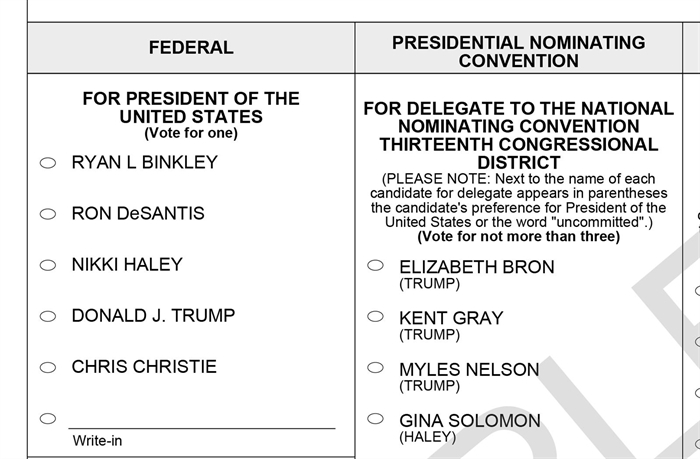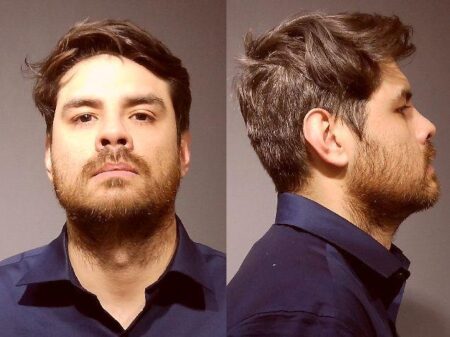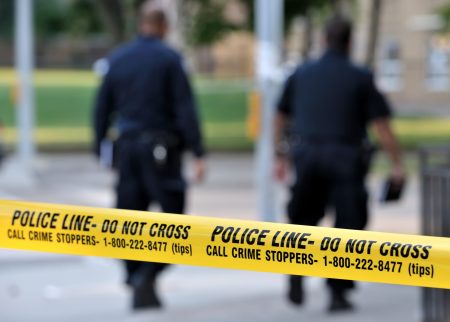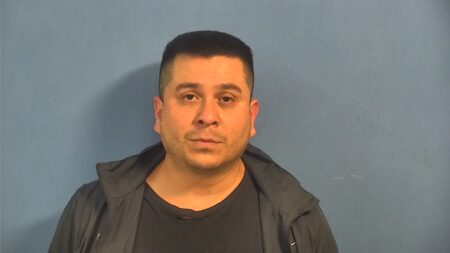By PETER HANCOCK
Capitol News Illinois
A Cook County judge ruled Wednesday that a case seeking to bar former President Donald Trump from the March 19 Republican primary ballot in Illinois will move forward independently of a similar case pending before the U.S. Supreme Court.
Following a brief hearing conducted by videoconference, Judge Tracie Porter denied a motion by the Trump campaign to delay the proceedings until after the Supreme Court rules in a similar case from Colorado. She said she would hear oral arguments in the Illinois case on Friday, Feb. 16.
At the same time, she also denied a motion by the Illinois voters objecting to Trump’s candidacy to put the case on an even speedier track.
The U.S. Supreme Court is scheduled to hear oral arguments in the Colorado case Thursday, Feb. 8.
Both cases are based on claims that Trump’s actions surrounding the Jan. 6, 2021, attack at the U.S. Capitol amounted to an insurrection, and thus he should be disqualified from holding public office under Section 3 of the 14th Amendment.
The case in Cook County Circuit Court is an appeal of a Jan. 30 decision of the Illinois State Board of Elections, which denied an objection to Trump’s candidacy on the grounds that the board is not authorized to decide cases involving complex constitutional issues.
The board also ruled the objectors failed to show that Trump knowingly lied on his statement of candidacy when he said he was qualified to hold the office of president.
Republican primary ballots that are sent to voters starting Feb. 8 will list Trump’s name. But if he is ultimately removed from the ballot, any votes he receives will not be counted.
The case is being organized by the national voting rights group Free Speech for People. The named objectors are Steven Anderson, of Lindenhurst; Darryl Baker, of Colfax; Ralph Cintron, of Chicago; Jack Hickman, of Fairview Heights; and Charles Holley, of Chicago.
Caryn Lederer, an attorney for the objectors, argued in Wednesday’s hearing that their case needs to move forward regardless of how the Supreme Court rules in the Colorado case because there are issues of Illinois law at stake that need to be resolved by Illinois courts.
Specifically, she argued that the State Board of Elections erred when it said it doesn’t have the authority to decide cases based on constitutional arguments. She also said it would be “incredibly problematic” if candidates who do not meet the qualifications for office are allowed to remain on the ballot as long as they don’t knowingly lie about their lack of qualifications.
But Adam Merrill, an attorney for the Trump campaign, argued that the U.S. Supreme Court had put the Colorado case on a fast track and that its decision will likely be issued in late February or early March, well before Illinois’ March 19 primary.
He also noted that the Illinois State Board of Elections is a bipartisan panel, made up of four Democrats and four Republicans, and that it voted unanimously to deny the objection to Trump’s candidacy.
Lederer responded by saying it was important to resolve the case as quickly as possible to avoid confusing voters. She noted that Thursday, Feb. 8, is the day when local election authorities can begin sending out vote-by-mail ballots.
Matt Dietrich, a spokesman for the Board of Elections, said after the Jan. 30 hearing that Republican primary ballots that are sent to voters starting Feb. 8 will list Trump’s name. But if he is ultimately removed from the ballot, any votes he receives will not be counted.
He also said that whenever a candidate is removed from the ballot after ballots have already been printed, local election authorities can either reprint the ballots or, if there is not enough time, simply inform voters at the polling place that the candidate has been removed.









